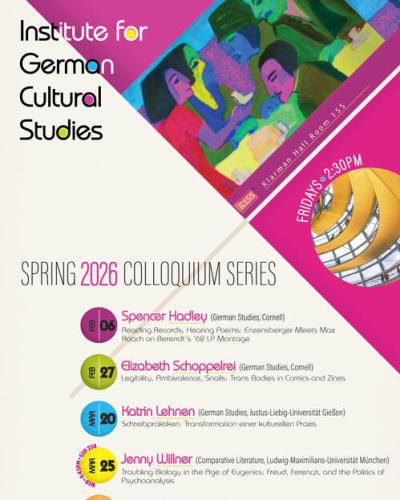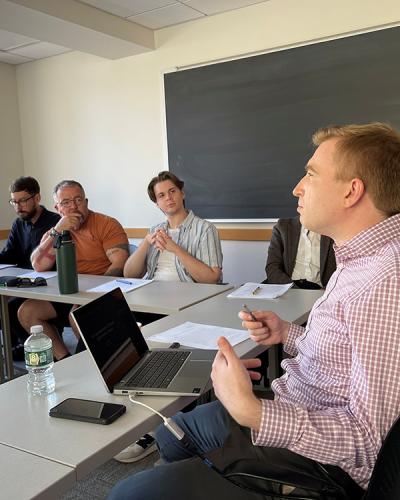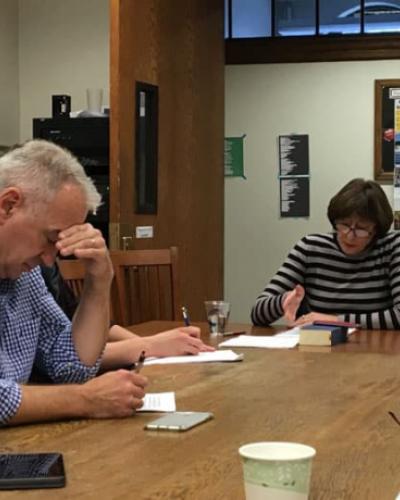On November 22nd Professor Inka Mülder-Bach (Munich/Princeton) presented the Colloquium Series with a paper focusing on questions surrounding the aesthetic, political, and social stakes of “prose” as both a broad, complex literary medium and as a metaphor underlying certain conceptions of modernity around 1800. Mülder-Bach began by returning to the Latin etymological origins of the term “prose” (a compound of ‘pro’ and ‘vorsa’) as something that is by definition “turned forward” as a way of distinguishing it from verse as a form that also has to supply its own constraints from within. The paper then pointed towards the developing importance of further solidifying the distinction between prose and verse at a time when prose’s characteristics as an aesthetic medium were being influenced by and exercising influence on political, familial, and aesthetic relationships in society. That prose, or the prosaic, are terms often employed as metaphors of modernity is not new, yet Mülder-Bach was intent on engaging in a close reading of Goethe’s 1795 serial novella Unterhaltungen deutscher Ausgewanderten to unpack how the forms of sociability, conversation, association, and communication that define the prosaic age manifest both on the level of content and in the formal structures of the texts themselves.
By looking closely at the language and syntactic structures of numerous passages where frame narratives overlap with intra-diegetic narrations of fairy tales, the paper came to center around the oddly polysemous German term “Umstände” (circumstances). This term appeared repeatedly in different forms in the text within different narrative levels and focalizations, and Mülder-Bach used this to nod to the complicated relationship prose attempts to establish with the modern world it seeks to mediate through written language—in other words, how it can act as a bridge. The paper sought then to investigate the overlaps between the social, aesthetic, and political realms that can be parsed out from within the morphological connection between mediating these “circumstances” (“Umstände”) into a prose whose formal characteristics many times reflect them mimetically on the level of style as well as content: a style that exhibits a circuitous (“umständlich”) character. The German “umständlich” reveals itself to be a characteristic that is at once exact and cumbersome, precise yet discursive. These two (seemingly) opposing meanings are what made this term so fruitful for the paper’s close readings of Goethe’s text, opening up a very productive discussion. The lively conversation ranged from questions about more precise formulations of prose (and the prosaic), to social and political questions probing the bourgeois familial space presented by Goethe, to questions about the presence of weaving within the stories and its relationship on a metaphorical and formal level to the “prose” Mülder-Bach was attempting to define. The most fruitful exchanges were centered around attempting to more clearly define what kind of relationship this written medium can have to the external world. As Mülder-Bach elegantly stated, “to write prose not only means to write in a language of prose. It means to write a language of prose and thus…to write a certain state of the world.” (Daniel Binswanger Friedman)





